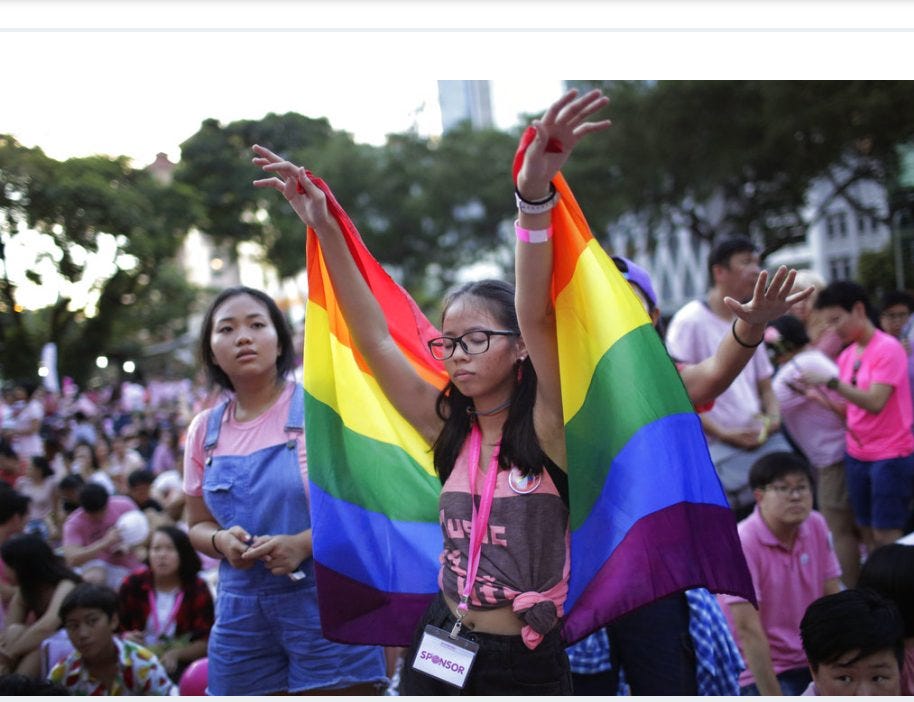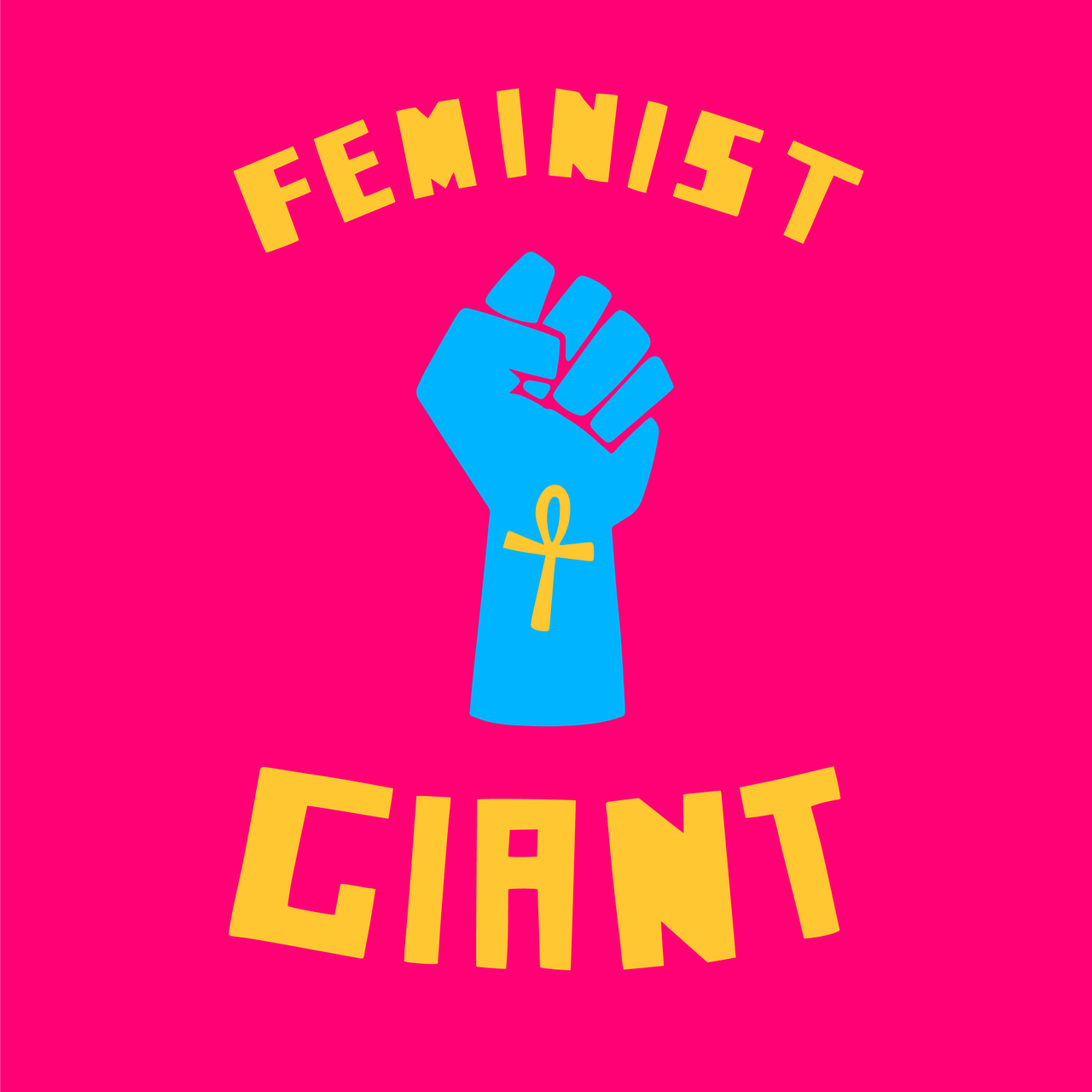Global Roundup: Mexico Writer Tells Story of Femicide, Decriminalizing Homosexuality in Singapore, Australia Domestic Violence Artwork Removed from Museum, Nigerian moms’ FB group, UK Ace Research
Curated by Samiha Hossain
The Mexican writer Cristina Rivera Garza.Marta Calvo via NBC
TW: femicide, violence against women
For years, Liliana had been trying to end a relationship with her boyfriend, who was possessive and violent. A few weeks before the tragedy, she had decided to leave her boyfriend behind and start a new life. Liliana's case has not been solved, though Rivera Garza's research and book have led to important information on the case.
Rivera Garza published a volume that takes readers into the life of the young student as well as her desires and dreams, using intense archival work including interviews with family, friends and authorities, as well as Lilliane’s own notes and writings she left behind. It was important for Rivera Garza to tell the story from her sister’s point of view and voice.
While she was in this world, she took the trouble to put together her own file and I took it very seriously, as if it were her instructions to tell about her life, and I respected what she said a lot, without trying to interpret from the present but leave her voice. - Cristina Rivera Garza
As documented, femicide is rampant in Mexico, where an estimated 10 women are murdered daily. In 2021, 1,004 femicides were registered in Mexico, a number that has gone up every year since 2015, when the authorities began to register such cases.
Rivera Garza believes that we have to be alert against narratives that she says translate the acts of violence against women with the language of crimes of passion. She recognizes that those who commit femicide are not monsters, but rather they are men who appear normal and are part of a system that favours them.
Patriarchy says that women are always to blame; that’s why we have to fight it, because that's the dominant language of the society in which we live. Every day we have to remind the authorities of their responsibilities. These crimes continue to happen because there is impunity, because a perpetrator of femicide knows that he can get away with it with very little chance of facing justice. - Cristina Rivera Garza
Writing this difficult book allowed Rivera Garza to process the tragedy and know her sister better. She also wrote an English version of the book, which will come out in 2023. Though it was undoubtedly a difficult book to research and write, Rivera Garza has shed light on the issue of femicides and kept her sister’s memory alive.
Image via The Diplomat
A remnant of British colonial legislation, which still largely shapes Singapore’s legal system today, Section 377A of the Singapore Penal Code prohibits sexual relations between consenting men in public and in private. Recent events have propelled this clause to the forefront of the news cycle in Singapore and abroad in light of a Court of Appeal ruling that rejected an appeal filed by three local Singaporean gay men in 2020, challenging the constitutionality of Section 377A. Johnson Ong Ming, Bryan Choong, and Roy Tan Seng Kee challenged the constitutionality of Section 377A, pointing out that the clause deprived gay Singaporeans of “life or personal liberty” under Article 9(1) of the Constitution of Singapore. The Supreme Court dismissed their challenges and all three parties subsequently appealed the verdict.
In recent years, alternatives spaces like The Projector, a historic movie theater that showcases independent queer cinema, art exhibits, and drag shows, have become valuable safe spaces for queer people in Singapore. Sukhjeet, a non-binary bisexual graduate student in Singapore believes a shift towards more acceptance of LGBTQ+ minorities is taking place in the city. Sukhjeet describes a status quo in which the government tolerates and usually turns a blind eye to the existence of a visible queer community, so long as this visibility remains constrained to these spaces.
I don’t think we can truly move forward as a community if we can only express ourselves in these spaces. - Sukhjeet
In late-March, an online survey on LGBTQ+ issues was posted by Reach, the Singapore Government’s official feedback unit. Among other questions, the survey sought opinions from Singaporeans on whether they believed Singapore is a safe space for LGBTQ+ minorities, and asked their stance on Section 377A: whether they believe the clause should be repealed, amended, or kept. Reach closed the survey the following day at noon Singapore time, having collected over 30,000 responses, saying that the feedback “will be shared with relevant agencies and could be used within the Government for policy updates and changes.”
[It] was posted sometime in the evening, but like many others I only found out about it the morning after. By the time I got to responding, I realized it was already about to close down. What kind of inclusivity is this?...Singaporean society has made some progress… The hope is that it is and will continue to spark this conversation in the mainstream media. - Sukhjeet
This survey was the first of its kind in Singapore, and many believe it represents a step toward a greater inclusion of LGBTQ+ issues in the public discourse in Singapore. Others, however, expressed skepticism with regard to how the survey was conducted and presented to the public. In an Instagram post, Singapore-based queer brand Heckin’ Unicorns denounced the language used in the survey, and the framing of the questions. Max, a local Singaporean gay man, hopes for more public consultations with various communities in order to understand the nuances of the issue. Ultimately, the LGBTQ+ community hopes for Section 377A to be repealed, but they are wary that large change will happen quickly.
Dans Bain with her artwork, The Lost Petition, outside Parliament House in Canberra. She says decision to remove it from museum in Melbourne means victims have been ‘doubly erased’. Photograph: Ian Cutmore via The Guardian
An artwork recognizing almost 1,000 women and children killed by men in Australia has been removed from a Melbourne museum. Melbourne artist Dans Bain was asked earlier this week to remove her 30 metre work, The Lost Petition, from the Her Place Women’s Museum before Friday’s opening of an exhibition celebrating 25 years of women in politics, curated by the Australian Labor party-affiliated network Emily’s List. In a statement, the museum said it was taken down because of the work’s size and scale, and the lack of an alternative space to install it. However, it was confirmed that it was also removed out of concern that there were insufficient measures in place for people who might be triggered by the work’s confronting nature.
The artist said the Emily’s List request to remove her work was like a “double erasure” of the women and children who had already had their lives snatched away.
This work is about bringing visibility to this issue of male violence against women and children and I’m pretty devastated that these lives have now been doubly erased because it’s been decided The Lost Petition is an uncomfortable reality. - Dans Bain
The Lost Petition fabric artwork consists of 12 white bedsheets stitched together and bears the names of 986 women and children murdered through domestic violence since 2008. As more deaths occur, their names are added to the work. The names of the victims inscribed on the artwork are provided by the founder of the anti-gendered violence group the Red Heart Campaign, Sherele Moody, who said the work’s removal was an “uncaring slap in the face” for the families of every victim named on the artwork.
I know some people hate this artwork because it tells an uncomfortable truth about violence in Australia, But to see a museum for women and another high profile women’s organization deem it inappropriate is a massive kick in the guts for me and for Dans. Saying now is not the time to hang this project shows how dead women and kids are an inconvenience to even those who should know better.” - Sherele Moody
The museum later stated that they will reinstall the artwork later in the year, in agreement with the artist.
Happiness Ochi-Ani, founder of Abuja Moms, at the group’s Walk Against Child Molestation, 5 March 2022. Chika Mefor-Nwachukwu via Open Democracy
The women-only Facebook group called Abuja Moms is a community of women that offer much-needed support to each other. It began as a Facebook blog, created by Happiness Ochi-Ani in 2015. Two years later, as a new mother with little time to blog, she created a Facebook group page with the same name. Today, Abuja Moms has 45,000 members from all walks of life.
I wanted to create a platform where women can just come together and unite. For me, it was important to disprove the popular myth that women are their fellow women’s problems. I really wanted to dispel that notion, because it is not true. I wanted women to realize that we are stronger together, that we are not in competition with one another. We can learn from one another to better ourselves. - Happiness Ochi-Ani
Ochi-Ani also started Abuja Moms Empowerment Foundation in 2018, where women members are able to both provide, and benefit from, many kinds of support. The group also provides support beyond its own members, to help women in underserved communities. One campaign includes the Abuja Moms 1000 School Bags programme to encourage children, especially girls, to go to school. Abuja Moms also has a legal team of four female lawyers to handle domestic violence, child molestation and other sensitive cases for the group’s members – free of charge.
However, there are challenges hindering the group’s activities and growth, often stemming from deep-rooted, negative views of women and their gatherings. According to Ochi-Ani, husbands often prevent their wives from associating with the group, in case they rebel against them. Getting adequate funding is also a challenge they face.
There is this misconception in Nigeria that, when women gather, it is for a bad reason, mostly aimed against men. We are trying to make society know that is a lie. - Happiness Ochi-Ani
Ochi-Ani is resolved to keep the group going – and growing. She hopes that one day Abuja Moms can have its own building, which, among many things, would accommodate female victims of abuse, supporting them until they can carry on with their lives.
Asexual activist Yasmin Benoit. (Apollo Flux) via Pink News
LGBT+ charity Stonewall and ace activist Yasmin Benoit are launching a groundbreaking project to improve the lives of the ace community, which launched on April 6 – International Asexuality Day. The project will undertake research to explore the experiences, needs and priorities of ace Brits with a focus on employment, healthcare and higher education. The findings will be published in a report later this year, setting out actions that politicians, companies and charities can take to better support the ace community.
Stonewall says that there is “still a worrying lack of understanding of the needs and experiences of ace people” and ace people are “often subject to dehumanizing myths and misconceptions” in the UK.
Yasmin Benoit is an award-winning asexual and aromantic activist, writer, speaker and consultant. She is “incredibly proud” to be working on “such a monumental project” and using her own “experience, platform and research background to drive ace rights forward”.
Having worked as an asexual activist for the past four years, it has been continuously brought to my attention that there are ace people in the UK who don’t feel protected by the current Equality Act. - Yasmin Benoit
Yasmine recognizes that there is a lack of research on asexuality and acrophobia currently. She sees awareness as the first step and representation within research and data as the next step.
Samiha Hossain (she/her) is a student at the University of Ottawa. She has experience working with survivors of sexual violence in her community, as well as conducting research on gender-based violence. A lot of her time is spent learning about and critically engaging with intersectional feminism, transformative justice and disability justice.
Samiha firmly believes in the power of connecting with people and listening to their stories to create solidarity and heal as a community. She refuses to let anyone thwart her imagination when it comes to envisioning a radically different future full of care webs, nurturance and collective liberation.







